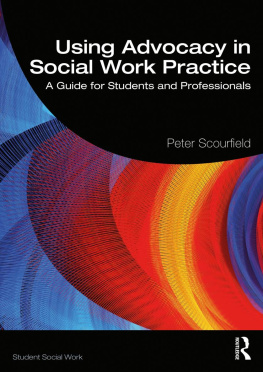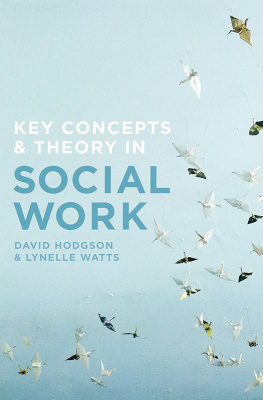James A. Forte - Skills for Using Theory in Social Work: 32 Lessons for Evidence-Informed Practice
Here you can read online James A. Forte - Skills for Using Theory in Social Work: 32 Lessons for Evidence-Informed Practice full text of the book (entire story) in english for free. Download pdf and epub, get meaning, cover and reviews about this ebook. year: 2014, publisher: Routledge, genre: Politics. Description of the work, (preface) as well as reviews are available. Best literature library LitArk.com created for fans of good reading and offers a wide selection of genres:
Romance novel
Science fiction
Adventure
Detective
Science
History
Home and family
Prose
Art
Politics
Computer
Non-fiction
Religion
Business
Children
Humor
Choose a favorite category and find really read worthwhile books. Enjoy immersion in the world of imagination, feel the emotions of the characters or learn something new for yourself, make an fascinating discovery.

- Book:Skills for Using Theory in Social Work: 32 Lessons for Evidence-Informed Practice
- Author:
- Publisher:Routledge
- Genre:
- Year:2014
- Rating:4 / 5
- Favourites:Add to favourites
- Your mark:
Skills for Using Theory in Social Work: 32 Lessons for Evidence-Informed Practice: summary, description and annotation
We offer to read an annotation, description, summary or preface (depends on what the author of the book "Skills for Using Theory in Social Work: 32 Lessons for Evidence-Informed Practice" wrote himself). If you haven't found the necessary information about the book — write in the comments, we will try to find it.
Using theory, research evidence and experiential knowledge is a critical component of good social work. This unique text is designed to help social work students and practitioners to integrate theorizing into practice, demonstrating how to search for, select and translate academic knowledge for practical use in helping people improve their lives and environments.
Presenting 32 core skills, Skills for Using Theory in Social Work provides a conceptual foundation, a vocabulary, and a set of skills to aid competent social work theorizing. Each chapter outlines the knowledge and action components of the skill and its relationship to core practice behaviours, along with learning and reflection activities. The lessons are divided into four parts:
- Section one discusses foundational material, including self-identification as a theorist-practitioner, the deliberate use of the term theory, and a social work approach to the selection of knowledge.
- Section two focuses on the adept use of theorizing skills. It covers identifying assumptions, using concepts, formulating propositions, organizing theory elements inductively or deductively, summarizing and displaying the elements of a theory, gathering and organizing assessment information and communicating with clients and colleagues about tentative theories.
- Section three includes lessons preparing social workers for the construction of useful middle-range theories including causal theories and interpretive theories and for testing and sharing these practical theories.
- Section four presents skills to develop critical thinking about theoretical knowledge. These include avoiding the misuse of theory, judging a theory using scientific standards, judging a theory by professional standards, critiquing theory in its cultural and historical context and making judgments about the likely long-term impact of a theory.
This key text will help readers to demonstrate their expertise in reflective, competent, and theory-informed practice. It is suitable for all social work students and practitioners, particularly those taking practice, theory and human behaviour in the social environment courses.
James A. Forte: author's other books
Who wrote Skills for Using Theory in Social Work: 32 Lessons for Evidence-Informed Practice? Find out the surname, the name of the author of the book and a list of all author's works by series.




